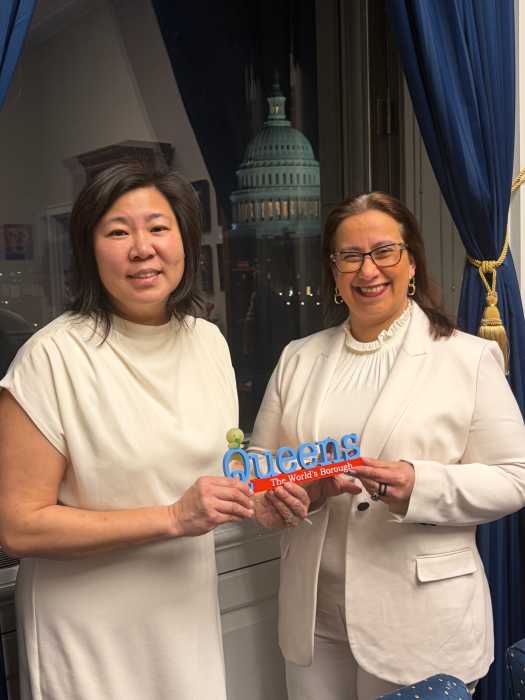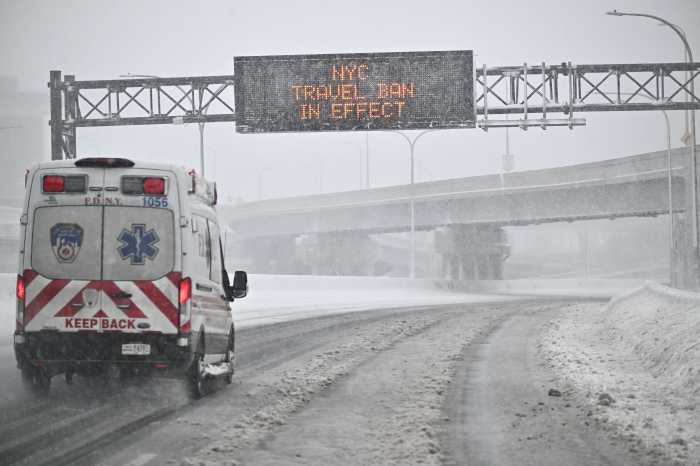Comptroller Scott Stringer held a town hall for residents of Jackson Heights and Elmhurst on Wednesday night, and he spent a considerable amount of the night on reforming Queens transit.
Stringer was accompanied at various points by state Senator Jessica Ramos and Assemblywoman Catalina Cruz during the two-hour exchange with constituents on April 17 at Elmhurst Hospital.
The town hall provided an opportunity for Stringer to flex some of the transportation reporting his office has done over the past year, which pertains to Queens constituents.
When Charlton D’souza, a former president of the McManus Democratic Club, urged Stringer to oversee the maintenance and upkeep of the Hollis Station LIRR station in Queens Village, the comptroller used the question as a way to tout his proposal to making commuter lines more affordable for city residents.
“Why don’t we align our commuter rail lines with the people in our city? Throughout Queens, all the way to southeast Queens, we have commuter lines that literally bypass New York City residents on the way to work,” Stringer said.
Stringer argued that rather than spending billions of dollars on new MTA stations, aligning the commuter lines with the subway would provide a quick fix for the mass transit’s congestion and delays.
“Our commuters should pay $2.75 to use the LIRR as well as the local subway station. That is fair and just,” he said.
But it wasn’t all wine and roses. Stringer and Ramos both encountered opposition for their support of congestion pricing plan to fund fixes to the MTA.
Adam Wilkes, an Elmhurst resident and member of the Democratic Socialists of America, argued that the plan pits “straphangers against car owners drivers” and would be better solved by a tax on concentrated wealth.
In response, Stringer argued that congestion pricing is a necessary piece to fund the proposal in Albany raise some $50 billion to fix the transit system, but it shouldn’t be the only funding stream. He made the case that the city should bring back a commuter tax for suburbanites who use mass transit to get to their jobs.
“I believe that every means of taxation should be on the table because without mass transit, the city stops,” he said.
Ramos added that the State Assembly included congestion pricing in the budget by creating a commission that will determine what the carve outs will be.
“But most importantly we did secure language that ensures that there is a lock box to ensure that that funding stream actually is streamed directly into the MTA,” said Ramos.



































